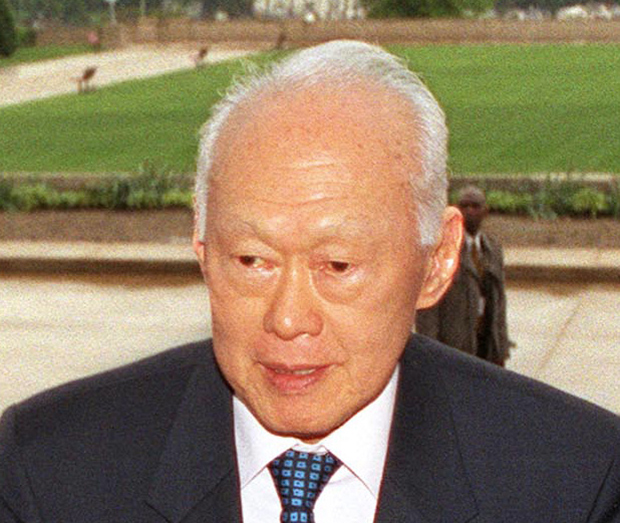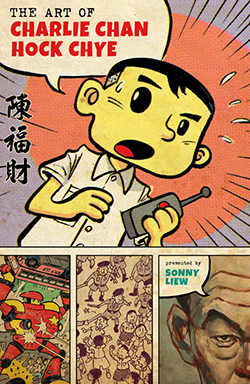Index relies entirely on the support of donors and readers to do its work.
Help us keep amplifying censored voices today.

Roy Ngerng has received a letter from lawyers representing Singapore’s prime minister.
Singaporean blogger Roy Ngerng has become the latest critic of the government to receive a lawyer’s letter.
Through his lawyer Davinder Singh, Singapore’s Prime Minister Lee Hsien Loong is accusing Ngerng of having made defamatory statements in one of his blog posts. He is demanding that Ngerng take down the post, make an apology and pay him damages. The amount of damages he is asking for is not yet clear.
For critics, commentators and political opponents of the PAP government – the People’s Action Party having been the ruling party in Singapore since 1959 – the threat today is not assassination or getting beaten up by hired thugs, a danger faced by critics and journalists in many other countries. The threat comes instead in the form of lawyer’s letters and lawsuits.
Ngerng’s blog post, entitled “Where your CPF Money is Going: Learning from the City Harvest Trial”, had drawn parallels between Lee, Singapore’s sovereign wealth fund GIC and the management of the Central Provident Fund (CPF, the state pension fund) and the ongoing trial over Singaporean mega-church City Harvest Church’s alleged misappropriation of funds.
He went on to ask questions about the handling of both the state pension and sovereign wealth funds.
“Why have they created such complicated ways that the funds are being channelled, and why do they hide some information that they don’t want Singaporeans to know?” he said to Index on Censorship about his motivation in writing his posts.
The prime minister saw things very differently. “The article means and is understood to mean that Mr Lee Hsien Loong, the prime minister of Singapore and Chairman of GIC, is guilty of criminal misappropriation of the monies paid by Singaporeans to the CPF,” wrote Singh in the letter sent to Ngerng. “This is a false and baseless allegation and constitutes a very serious libel against our client, disparages him and impugns his character, credit and integrity.”
If Ngerng does not concede to the prime minister’s demands by Monday at 5pm Singapore time, legal action will be taken against him. He is still talking to his lawyer about steps to take next.
“By eliminating the discourse through a lawsuit I am not able to get more information about [how our CPF is managed],” said Ngerng, adding that he hoped his case would at least further awareness and discussion of the way CPF rules affect Singaporeans.
This is nothing new. British journalist Alan Shadrake was famously taken to court in 2011 for scandalising the judiciary in his book “Once a Jolly Hangman” which examined the use of the death penalty in Singapore. He was found guilty and was jailed for about five weeks before he was deported to the UK.
The socio-political blog Temasek Review Emeritus was threatened with a defamation lawsuit in 2012 for publishing an article that alleged nepotism in the appointment of the prime minister’s wife, Ho Ching, to the chairmanship of Singapore’s other sovereign wealth fund Temasek Holdings. The blog deleted the article and published an apology.
The Attorney-General’s Chambers is also seeking to take legal action against blogger Alex Au for allegedly scandalising the judiciary in two of his blog posts. The court has so far allowed them to take action on only one of the posts, and the AGC is appealing the decision.
Many Singaporeans have objected to the threat of a defamation lawsuit against Ngerng. They argue that even if Ngerng’s assertions had been problematic, the prime minister should have countered them through openness and dialogue rather than a potentially financially ruinous lawsuit.
“The right to freedom of expression is enshrined in our Constitution, in the Universal Declaration of Human Rights, and even in the ASEAN Human Rights Declaration signed by our Government. Yet, our Government’s actions, once again, are highly regressive, and serve to limit the space for expression instead of expanding it,” said human rights organisation MARUAH in a statement.
“Defamation actions do not address the concerns that Singaporeans have. Ngerng’s article, touching on issues like CPF and retirement funding, has sparked important questions that Singaporeans wish to be answered,” said another statement issued and signed by 54 civil society activists and supporters. “The prime minister’s threat of legal action, and the accompanying demand to remove the entire article, will eliminate dialogue and engagement on these questions when they should be debated and rebutted in public.”
This article was published on May 22, 2014 at indexoncensorship.org
This story was updated on Friday, May 23, 2014 to reflect an extended deadline for Ngerng to respond. The previous deadline set for response was Friday May 23. The new deadline for a response is Monday, May 26 at 5pm.

Singapore’s founding father and long-serving Prime Minister Lee Kuan Yew, who died in March. (Photo: “Lee Kuan Yew” by Robert D. Ward – Licensed under Public Domain via Wikimedia Commons)
Salil Tripathi has joined Index as an online columnist and will be contributing monthly
The golfing phrase “OB markers” has a special meaning in Singapore. Short-hand for what is “out-of-bound,” it lays out, informally, the limits of what can be said, and if you’ve lived long enough in Singapore, you are supposed to know what those markers are, and where they are.
Singapore has laws regulating speech, some of which are inherited from the British era, while others were refined to suit Singapore’s governance model, which many have described as soft authoritarianism, associated with Lee, who died in March at 91, led his People’s Action Party to successive electoral victories since independence in 1965, and the party has remained in power since. Goh Chok Tong succeeded Lee as prime minister in 1990, and Lee’s son, Lee Hsien Loong, has been prime minister since 2004.
The genius of the principle of OB markers lies in its ambiguity – the markers are not clearly defined; it is incumbent on the journalist to figure out what can and cannot be said; it keeps everyone guessing. The model has suited Singapore well for the past five decades. The local media, much of it owned by companies close to the government, has little problem with it. Many international publications have also complied with the system. (Most foreign correspondents based in Singapore have regional responsibilities, and South-East Asia does offer a range of interesting stories. Unlike those countries, Singapore’s post-independence history has been far less dramatic.)
Besides, when foreign publications published stories or commentaries critical of Singapore, they faced lawsuits. Far Eastern Economic Review, where I worked for some of my eight years there, was combative; it not only lost lawsuits and its circulation was restricted, as was the case with some other publications.
This year marks a watershed – the republic celebrates its 50th anniversary, but the joy is clouded by Lee’s passing. Many have credited him with building modern Singapore; those who lament Singapore’s stunted politics say it is the result of his style of governance.
Is Singapore on the cusp of becoming different?
In four recent cases Singaporeans have tested the limits of freedoms they can take for granted. A video, a film, a blog and a graphic novel have pushed at the boundaries of what can be said, and the government realises that it cannot simply ban these, because banning is no longer that simple, and Singaporeans today are better-educated and more demanding than in the past. Singaporeans no longer watch films only in theatres or on television, nor buy books only in shops, and nor do they consume news and opinions only through newspapers and magazines. Furthermore, better-educated, articulate Singaporeans want to be treated as thinking adults who can make up their own minds. How Singapore deals with this change will determine what kind of society Singapore will become.
Amos Yee is a teenager with an attitude. In a controversial video he posted online within days of Lee’s passing, he made highly critical and disparaging remarks about Lee. Yee is precocious and strident, and doesn’t fit the image of the shy, polite, obedient Singaporean with a neat hair-cut that the republic has tried so hard to groom. With an accent that sounds North American and a vocabulary that would make his grandparents cringe, he attacked Lee’s political legacy and economic record, pointing out economic disparities and the silencing of the opposition.
But he also criticised Christianity, and for that, Yee was arrested and charged with showing “intention of wounding” religious feelings. To be sure, many ruling party supporters were incensed over his political criticisms. One man made crude physical threats online. (Making violent online threats is a crime in Singapore). Another man slapped Yee when he was on his way to court (the man was subsequently arrested, tried, and jailed). Yee’s attitude did not help; his lawyer was exasperated by Yee’s recalcitrant behaviour (including flouting bail conditions), and it was hard to figure out if he should be tried as an adult – and punished accordingly – or sent for psychiatric evaluation. In the end, he was sentenced, but as he had spent more time in remand than his sentence, he was released. The Wall Street Journal wrote the case showed Singapore’s struggle to adapt its tradition of censorship to the realities of the digital era.
Yee presented a unique dilemma for Singapore. The government is used to respond robustly to critics who are political rivals, academics, or foreign journalists. It has sued opposition politicians, some have become unemployable, and some have had to leave the country, as their visas are not renewed. But here was a boy, not yet an adult; he was not old enough to be part of the mandatory military service; and he was being deliberately provocative. But how could a state go after a teenager who has acted like a brat?

Roy Ngerng
Roy Ngerng is a blogger who has criticized the government’s handling of the mandatory Central Provident Fund in his blogs. As an activist, he has campaigned for greater equality through higher public spending. Prime Minister Lee Hsien Loong sued Ngerng for defamation, and during his recent trial to assess damages, Lee’s lawyer Davinder Singh sought aggravated damages. Ngerng described himself as a man of limited means and argued his own case, and said he had apologized; Lee’s lawyers said the apology was not sincere enough. At one point, Ngerng broke down in the court. In another case, Tan Shou Chen, who acts in an ongoing show, LKY: The Musical wrote a blog where he claimed that the government had interfered with the script. The government denied it, and Tan took down his post. The show is running till 16 August.
Tan Pin Pin has made a film called To Singapore With Love, which showcases the lives of left-leaning dissidents who had challenged Lee in the 1960s. In the years leading up to Singapore’s independence, Lee had initially allied with the left, but later parted company. It was a period of regional turmoil, with the war raging in Vietnam and spreading to Indo-China, and there were real fears of Communism spreading across South-East Asia. These dissidents left Singapore and went into exile; a few have since died, and others are not allowed to return to Singapore. Tan’s film gives voice to those individuals, portraying them sympathetically as nationalists who saw Singapore’s future differently.
Singapore has banned the film from public screening because it “undermined national security”, but private screenings are allowed in Singapore. A week after its ban last September, more than a hundred Singaporeans took buses to Johor Baru, the Malaysian city across the causeway that links Singapore and Malaysia, and saw it there. Tan challenged the ban but she lost. The film has been shown at international festivals and while it can be bought online overseas, it cannot be shipped to a Singaporean address.
 Finally in June, Singapore’s National Arts Council withdrew its grant made to artist-illustrator Sonny Liew, who had published a graphic novel called The Art of Charlie Chan Hock Chye. The council said the way the graphic novel retold Singapore’s history undermined public authority. Interestingly, it did not ban the book; the council wanted its money back. (The publisher complied; the graphic novel sold out instantly and reprints were ordered).
Finally in June, Singapore’s National Arts Council withdrew its grant made to artist-illustrator Sonny Liew, who had published a graphic novel called The Art of Charlie Chan Hock Chye. The council said the way the graphic novel retold Singapore’s history undermined public authority. Interestingly, it did not ban the book; the council wanted its money back. (The publisher complied; the graphic novel sold out instantly and reprints were ordered).
These cases show the constant tussle over where those OB markers lie in Singapore isn’t over. In the past, it was clear: there were bans, prosecutions, bankruptcies, fines and jail terms. In the post-LKY Singapore, rules are changing and those markers are shifting.
Singapore’s leaders lay great store in business school principles and terms, such as feedback loops. They will have to ensure that those loops are not shut, and listen to what Singaporeans are saying. That is possible in an environment where people are free to draw, write, and speak. There is an east Asian saying that “the bamboo shoot that grows tall gets chopped first.” Chopping that bamboo shoot is no longer an option. If the government listens more, Singapore will benefit. True, some teenagers will throw tantrums, but that’s part of growing up.
Index on Censorship magazine has been covering Singapore since 1975 when Simon Cassady reported on Lee Kuan Yew & the Singapore media: Purging the press.
This column was posted on 30 July 2015 at indexoncensorship.org

Roy Ngerng has received a letters from lawyers representing Singapore’s prime minister.
A Singaporean blogger has had to take down another four blog posts and a YouTube video after receiving another letter from the lawyer of Prime Minister Lee Hsien Loong.
Roy Ngerng first received a letter from lawyer Davinder Singh on behalf of Prime Minister Lee Hsien Loong last week demanding that he take down and apologise for one blog post that had drawn parallels between Lee’s position as chairman of a sovereign wealth fund and the management of Singapore’s state pension fund and an ongoing trial into the misappropriation of funds by a megachurch.
Lee’s lawyer said that alleging that the he had misappropriated funds “constitutes a very serious libel”. On top of asking Ngerng to apologise, Lee also wanted to claim costs and damages.
Ngerng apologised for the article on Friday morning, admitting that the allegation was “false and completely without foundation”. He asked that Lee waive his demand for damages.
In response, Lee’s lawyers set a Monday evening deadline for Ngerng to respond with an offer of damages. If not, legal proceedings would be taken against him.
On Monday morning, another letter was received, taking issue with four blog posts and a video. Three of the blog posts raised questions over the way the state pension fund is managed, whereas the last blog post and video contained Ngerng’s response to Lee’s demand for damages.
Two of the articles had been published long before the first lawyer’s letter had arrived, one in July 2012 and one in May 2013.
“It is now clear from your client’s latest posts that your client’s apology and undertaking was not and never meant to be genuine,” Davinder Singh wrote to Ngerng’s lawyer M Ravi. He went on to say that Ngerng had “opportunistically” used the episode to “raise his public profile, garner support and sympathy, and renew his attack against our client”. This, Singh asserted, meant that Lee would be entitled to “aggravated damages”.
But Lee would be prepared not to claim these aggravated damages if Ngerng took down the four blog posts and video by Monday evening. Ngerng still has to make an offer of damages for the initial blog post that sparked this whole dispute.
In response, Ngerng’s lawyer M Ravi said that Ngerng would comply with Lee’s demand and take down the posts. He also asked that the deadline for an offer of damages be extended to Wednesday evening.
This article was posted on May 27, 2014 at indexoncensorship.org